
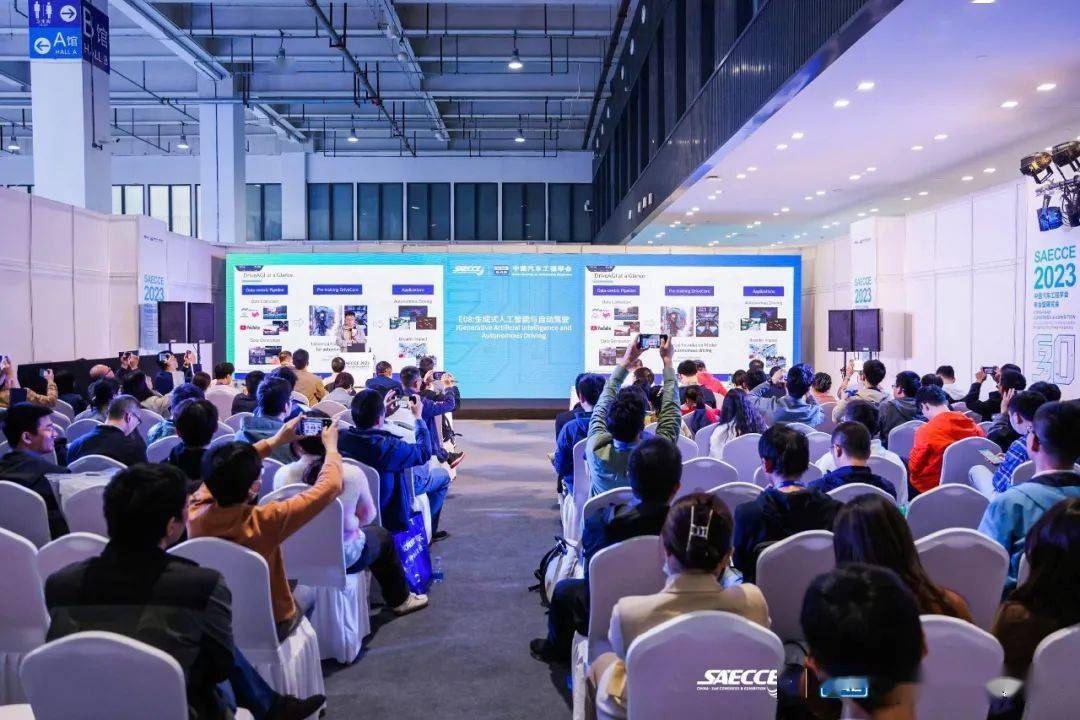
On October 26, 2023, the "Generative Artificial Intelligence and Autonomous Driving" special branch jointly organized by the China Society of Automotive Engineers, Tsinghua University, and Peking University was successfully held at the Beijing Etron International Convention and Exhibition Center. This conference is one of the important thematic branches of "Intelligent Connected Vehicle Technology" in the 2023 China Association of Automotive Engineering Annual Conference and Expo (SAECCE2023). It mainly discusses the intersection of generative artificial intelligence technology and autonomous vehicles, including perception, Positioning, decision-making, control, vehicle-road collaboration, algorithm security and other applications. The conference topics cover artificial intelligence algorithm security reinforcement, end-to-end autonomous driving, reinforcement learning, vehicle-road collaborative sensing, distributed behavior-critical algorithms for optimal control, intelligent driving AGI, etc.
Professor Li Shengbo, Vice Dean of the School of Vehicles and Transportation, Tsinghua University, served as the chairman of this meeting and presided over the meeting. Dr. Liu Chang, a researcher at Peking University School of Engineering, served as co-chairman of the conference. At the meeting, six experts and scholars from Tsinghua University, Shanghai Artificial Intelligence Laboratory, Shanghai Jiao Tong University, University of Science and Technology Beijing, and SenseTime Research Institute delivered wonderful keynote speeches, and the interactive atmosphere of the forum was lively and lively.
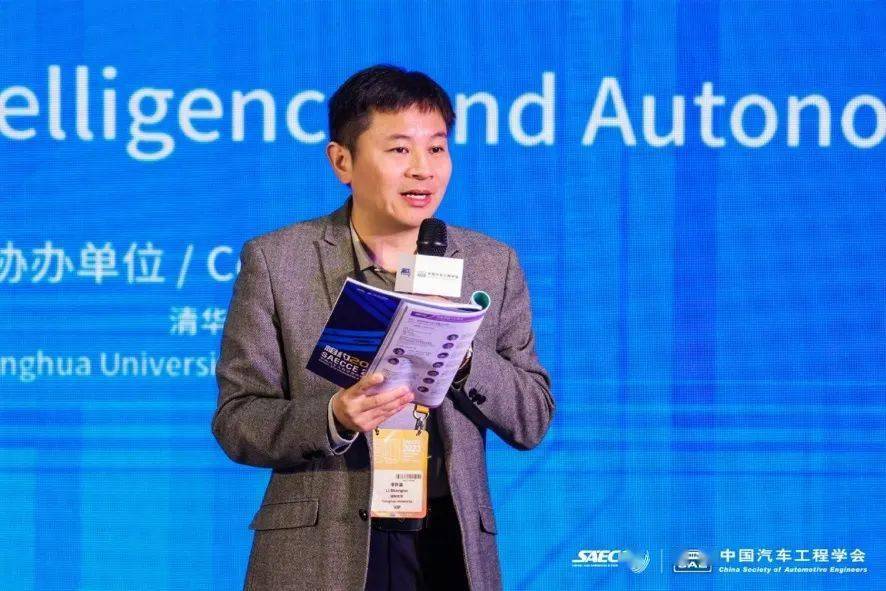
Li Shengbo, Vice Dean of the School of Vehicles and Transportation, Tsinghua University
Cui Peng, a permanent associate professor at Tsinghua University, analyzed the current safety bottlenecks of autonomous driving algorithms from the perspective of autonomous driving algorithm safety, and proposed an important technical approach to improve the safety of autonomous driving algorithms, that is, improving the artificial intelligence of autonomous driving Out-of-distribution generalization capabilities of intelligent algorithms. Based on the problem of out-of-distribution generalization of artificial intelligence algorithms, the importance of algorithm generalization applied to autonomous driving is emphasized, and on this basis, two solutions are proposed to solve the problem of out-of-distribution generalization, which are based on Extrapolation of causal inferences and data-based interpolation in search of invariance. Subsequently, Professor Cui Peng introduced his team’s recent research results, proving through experiments that their method has stronger generalization performance than traditional autonomous driving algorithms. Finally, Professor Cui Peng provided a new development direction for the problem of generalization of existing autonomous driving algorithms. He believed that the generalization boundary evaluation of artificial intelligence algorithms can be used to make the algorithm develop towards a more ideal state
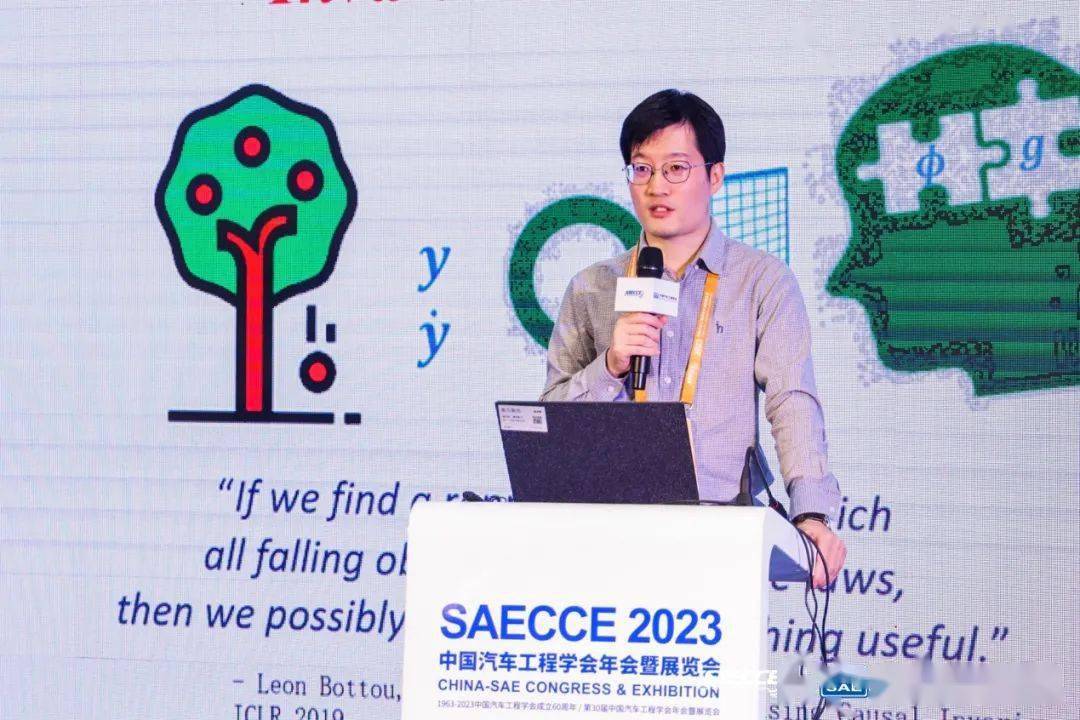
Cui Peng, permanent associate professor of Tsinghua University
Dr. Cao Xiaoxu, a young researcher from the OpenDrive team of Shanghai Artificial Intelligence Laboratory, shared the current research and development progress of end-to-end (E2E) technology to empower autonomous driving based on the current development status. First, Dr. Cao reviewed the development history of the autonomous driving field, then analyzed the field of large model-empowered autonomous driving, and finally gave an outlook on the autonomous driving industry. He believes that the core of E2E technology should be decision-oriented, and on this basis, various sub-modules should be unified. Then, Dr. Cao believed that there are three main core challenges in current technology, namely the problem of strategy competition, the development of world models and the problem of algorithm generalization. On this issue, he proposed the OpenDrive team's DriveAGI architecture, which treats the vehicle as an intelligent vehicle. body and integrate reasoning, decision-making, execution and generalization to develop a truly large model of autonomous driving. Finally, Dr. Cao looked forward to the third generation of data sets. He believed that future data sets should be diverse. On the premise of increasing size, they should also have task diversity and scene diversity, and should have better sensor configurations. It has the characteristics of multi-modality and high complexity.
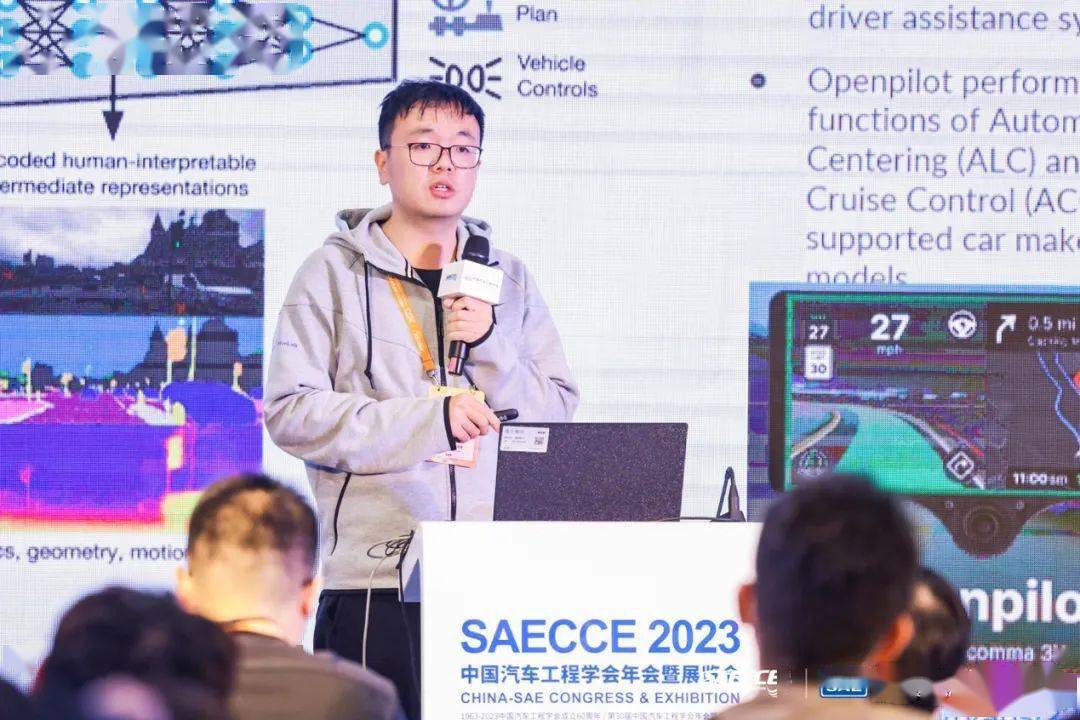
Cao Xiaoxu, a young researcher on the OpenDrive team of Shanghai Artificial Intelligence Laboratory
Dr. Xu Huazhe, an assistant professor at the Institute of Cross-Information at Tsinghua University, reflected on the current development status of reinforcement learning technology. He believes that reinforcement learning algorithms used in industry, especially in the field of autonomous driving, currently have certain shortcomings. This is because there is a delay in the agent learning in the environment, and there is a strong correlation between the data generated by deep reinforcement learning and the agent's actions. On this basis, Dr. Xu Huazhe summarized two major problems with current reinforcement learning algorithms: low sample efficiency and low generalization ability. He believes that the top priority is to improve the problem of underestimation caused by low sample efficiency and avoid the agent losing the exploration of the correct strategy due to multiple task failures. At the same time, Dr. Xu Huazhe believes that reinforcement learning algorithms also have generalization problems, and based on the current situation, he and his team proposed an algorithm called "RL-ViGen". Experiments have proved that the algorithm has good performance and generalization capabilities.
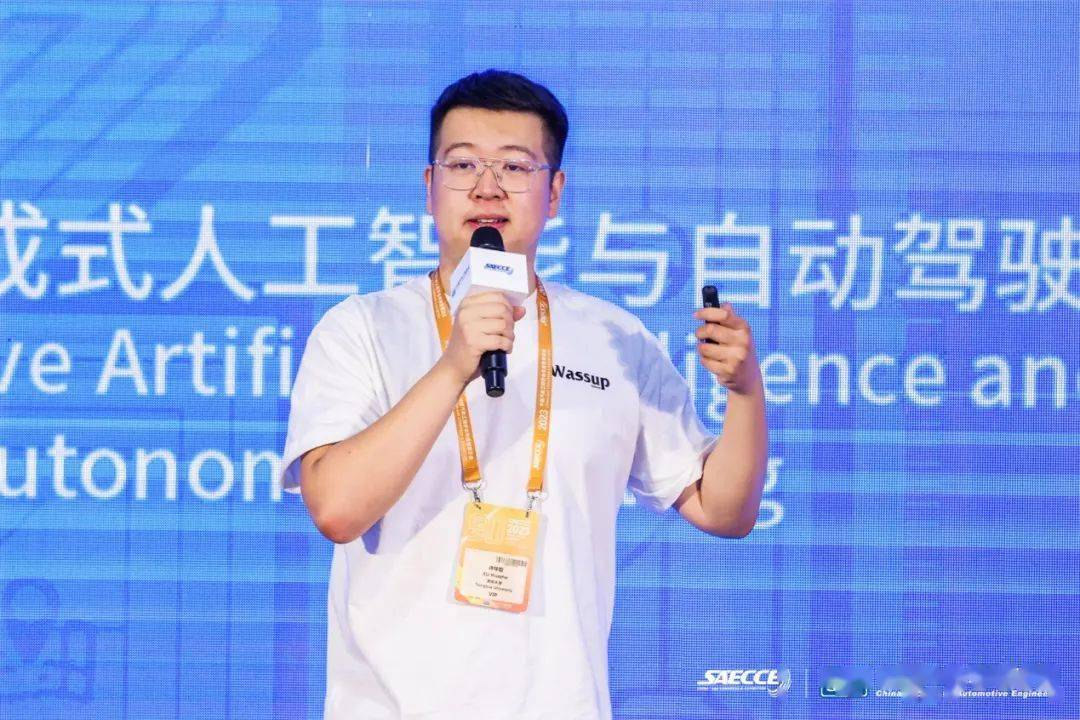
Xu Huazhe, assistant professor at the Institute of Cross-Information, Tsinghua University
Dr. Chen Siheng, a permanent associate professor at Shanghai Jiao Tong University, introduced a vehicle-road collaborative sensing method with convenient communication. Autonomous driving is an important application scenario for crowd sensing. Through the autonomous sharing of key information, it can solve sensing problems that are difficult for a single entity to overcome. Faced with the challenge of huge and time-varying communication link loads in crowd sensing, Dr. Chen Siheng's team pioneered a machine learning framework that uses "pragmatically driven perception supply and demand" to drive "multi-agent autonomous interaction", which can adapt to any communication Bandwidth and number of rounds, reduce communication consumption and improve moving target detection effect. Finally, Dr. Chen Siheng systematically introduced the various dimensions that affect the interactive perception effect of crowd intelligence, and affirmed the realistic benefits and huge potential of the vehicle-road collaboration solution.
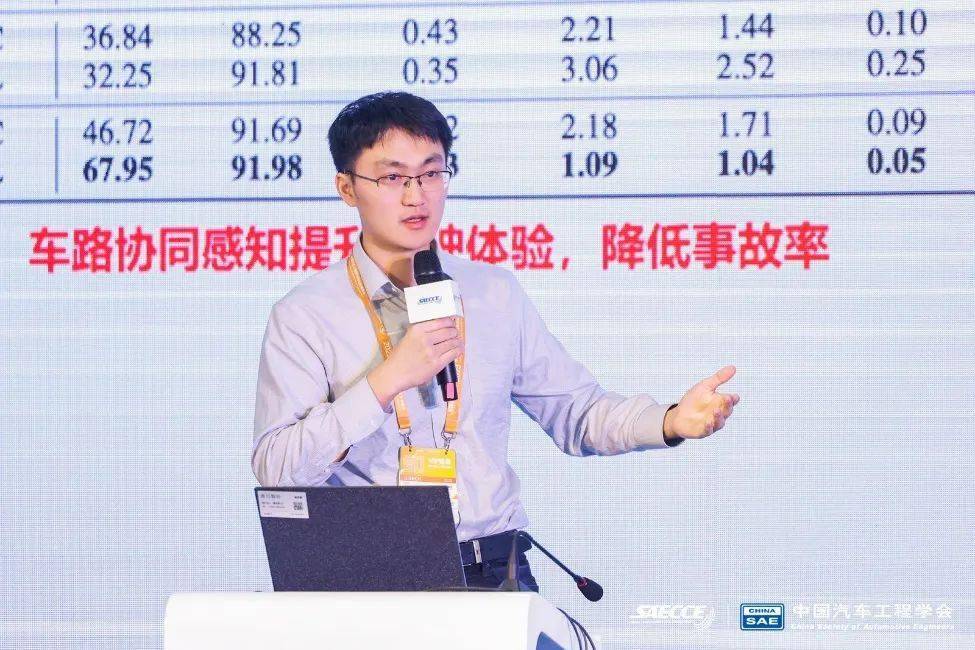
Chen Siheng, permanent associate professor of Shanghai Jiao Tong University
Dr. Duan Jingliang, Associate Professor of the Dean of Mechanical Engineering at the University of Science and Technology Beijing, started from the development trend of industrial intelligence needs and data-driven control, using reinforcement learning as a solution tool for optimal control problems, and introduced his team’s efforts in promoting reinforcement learning in industry Contributions made to the community, including self-developed reinforcement learning solution tool chain GOPS and value distribution reinforcement learning algorithm (DSAC). Among them, GOPS has a modular configuration, embeds mainstream and self-developed training algorithms, a variety of approximate functions, and supports gym, Simulink and custom environments, building a bridge from industrial problems to application solutions. The DSAC algorithm can effectively suppress the overestimation problem and steadily improve performance by learning the value function distribution. At present, this algorithm has been combined with constraint tasks, confrontation tasks, smooth neural networks, etc. to achieve diversified expansion forms, and has been applied in tasks such as hybrid vehicle energy management, rock drill control, and rocket recovery.
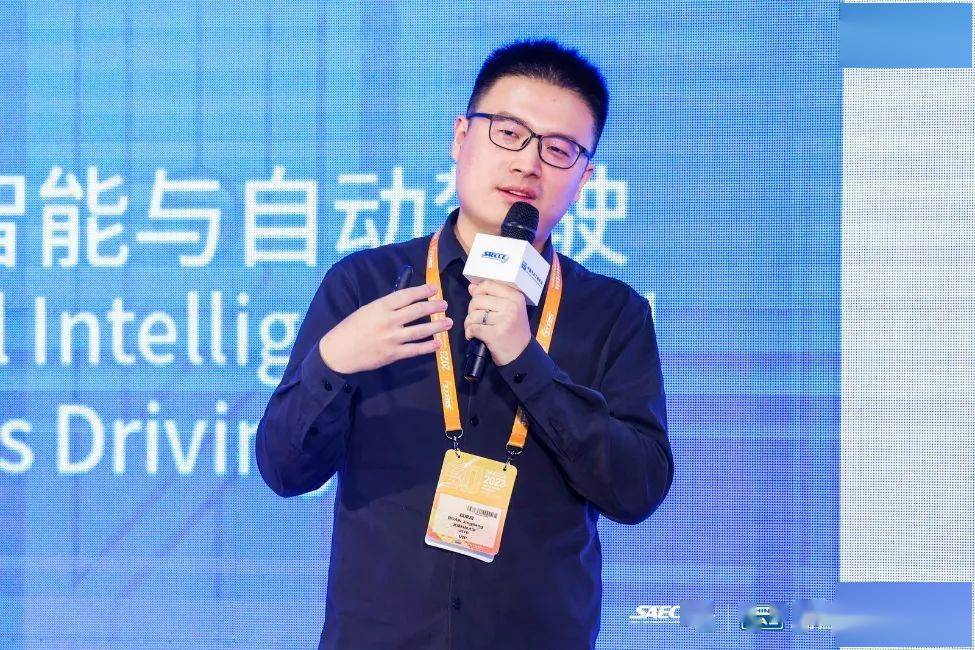
Duan Jingliang, Associate Professor of Mechanical Engineering at University of Science and Technology Beijing
Dr. Lu Lewei, R&D Director of SenseTime Research Institute, systematically introduced the R&D process and development layout of Jueying Intelligent Driving. From the industry-leading sequential BEV algorithm BEV Former to the large model solution BEV Former2, to the obstacle detection solution OccNet, SenseTime Jueying is in a leading position in the development and implementation of perception technology in the industrial world. Under the empowerment of large models, SenseTime proposed UniAD, a multi-modal large model solution for autonomous driving, which integrates autonomous driving perception and decision-making, and has received widespread attention from academia and industry. On this basis, Jueying Intelligent Driving will continue to deploy general artificial intelligence and promote the further application of multi-modal large-model solutions for autonomous driving.
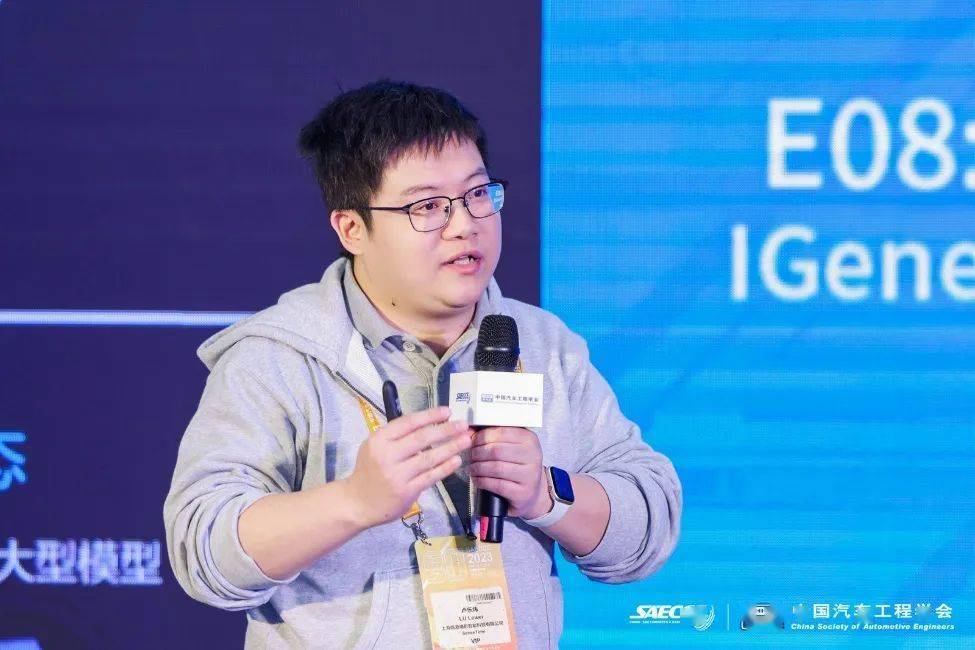
Lu Lewei, R&D Director of SenseTime Research Institute
After the meeting, Professor Li Shengbo awarded speech certificates to the experts and scholars who participated in the report.
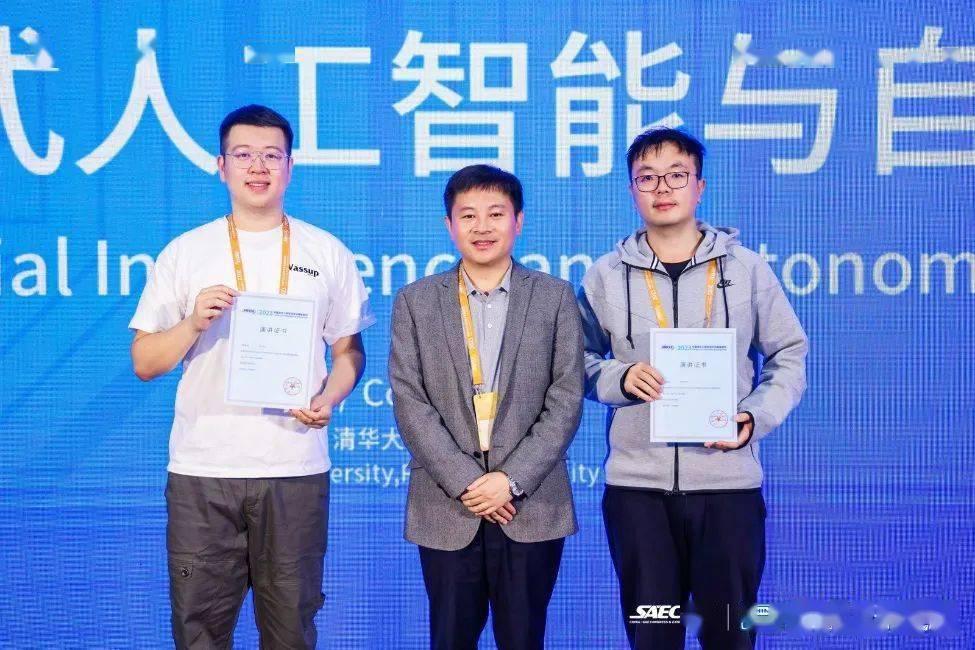
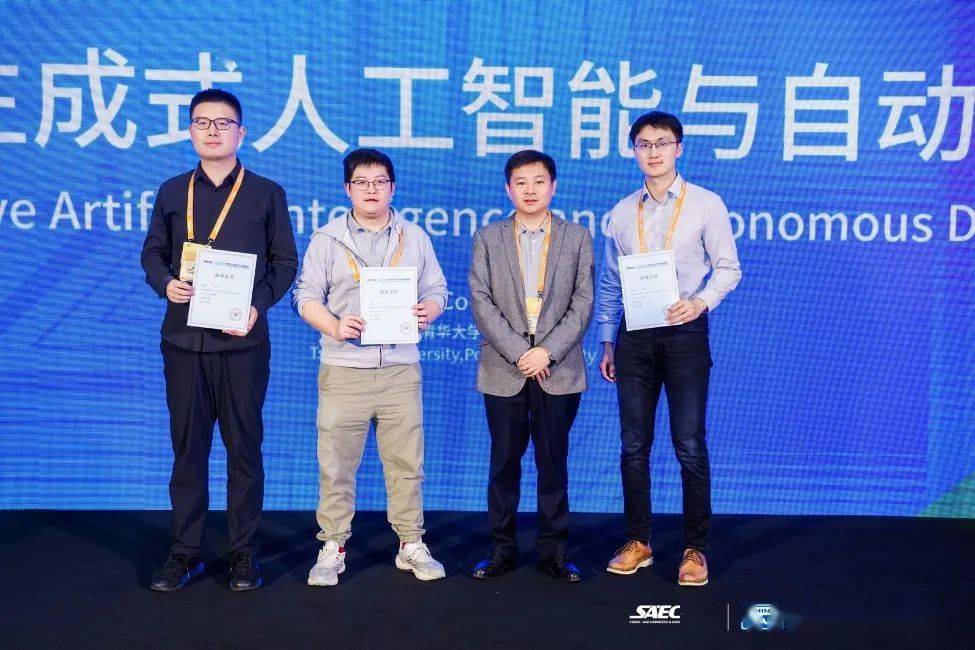
The above is the detailed content of SAECCE 2023 'Generative Artificial Intelligence and Autonomous Driving' special session was successfully held. For more information, please follow other related articles on the PHP Chinese website!




